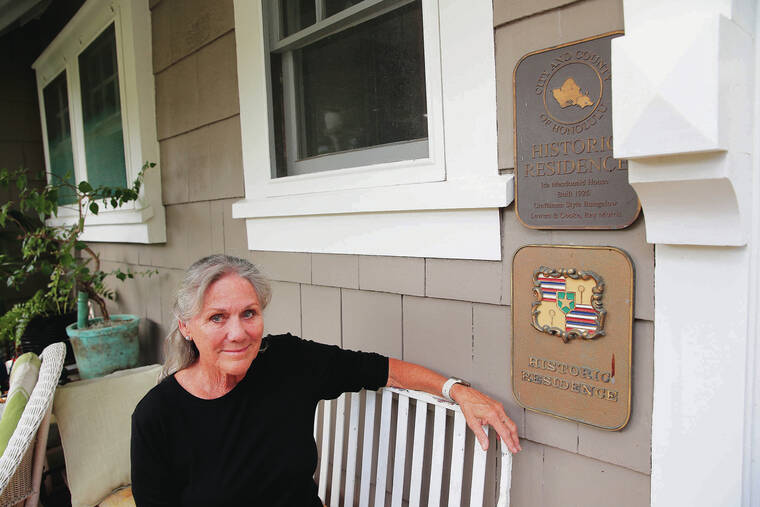In this age of obnoxious “monster home” construction, historic architecture provides needed grace notes in our communities.
That’s why a property tax break is justifiable for owners of historic homes, as an incentive to help preserve such assets in our neighborhoods. Just how much, though, is now open for discussion.
Certainly, the current $300 that most historic- home owners pay annually is too low, especially since it’s remained at that rate since 2010. That’s a dozen years ago — during which time, Oahu property taxes for most other residential property owners have risen, and in many areas, surged.
In its June 30 meeting, the Oahu Real Property Tax Advisory Commission rightly reiterated its recommendation that the exemptions provided to historic residential and commercial real properties be increased from the minimum real property tax of $300 annually, to $1,000. It was a proposal broached in 2019 by the commission, which is tasked with examining property tax exemptions given to various properties, such as historic homes.
Further, the commission suggested that the City Council might consider whether the historical properties program continues to serve a necessary and beneficial purpose to the city and its taxpayers. That’s a fair point, since periodic reassessment of any government program can reveal its worth, as well as room for improvement.
In fiscal year 2021-22, the historic homes exemption — totaling $4.19 million for 376 homes — account for a mere sliver of the $164.14 million in property tax breaks given out by the city. And to hear the owners of historic homes tell it, getting the property tax break is an important incentive, given the higher cost of renovations under higher-bar preservation conditions.
“When you factor in the way that you have to maintain and restore and keep up these old houses, it really pales when you can go to Home Depot and buy a plastic screen and just pop it in your window,” noted Linda Legrande, president of Malama Manoa, and owner of a historic home. “We can’t do that. We have this obligation to maintain the house in as much of the original condition that it was built in.”
The commission’s recommendations are expected to get public vetting before the City Council. Raising historic homes’ $300 property tax is reasonable — to $1,000 annually, or perhaps as one Council member suggests, tying the tax exemption to increases in the consumer price index. But in assessing the program’s worth, remember: Value and appreciation can’t be based solely on monetary terms.

